Michael Albert responds to some common objections and concerns that Greg Wilpert raises about his vision for a participatory economy, such as how to avoid the spontaneous formation of black markets, whether his proposal should be considered socialist or anarchist, and whether his proposal can be a considered a blueprint.
Greg Wilpert
Welcome to theAnalysis.news. I’m Greg Wilpert. This is part three of a three-part interview that we’re doing with Michael Albert, who is the author of the book No Bosses: A New Economy for a Better World, published by Zero Books.
Again, I just want to urge people to check out parts one and two. The first part was actually done with Paul Jay, and the second part was with me. We basically outlined most of the vision that No Bosses outlines for a post-capitalist classless economy and what that could look like. That is one that is based on worker and consumer councils, on remuneration based on duration, intensity, and onerous of socially valued labor, balanced job complexes, and participatory economic planning.
Again, Michael is a longtime activist, author of 20 books and hundreds of articles, and co-founder of ZNet, Z magazine, and many other media projects. He’s the co-author of a vision called Participatory Economics, or Parecon for short. Thanks again, Michael, for joining me today.
Michael Albert
Thanks for having me.
Greg Wilpert
Okay, so we already outlined the groundwork for what a participatory economy would look like. I wanted a couple of follow-up questions on some of the details and issues that seem to me to need some fleshing out. One of the first ones that occur to me, and this applies to the participatory planning aspect, but also to the remuneration aspect. You already started talking about it in the last segment, but I just want to dig a little bit deeper. That is the question of how do you prevent markets from forming on the side?
One of the things about our current economy is that people are being pushed, especially I mean, this is a new feature under neoliberal capitalism, really, is that people are being pushed into becoming more and more self-employed and to have their own company of one, the gig economy, those kinds of things. For some people, it’s working pretty well. For other people, it’s pure misery. In a participatory economy, what is it that would prevent someone from, let’s say, just staking out their own thing and trying to make a living that way? In other words, offering themselves to the highest bidder, assuming that there is sufficient disposable income on the side that, let’s say, somebody needs a babysitter will start small, or somebody wants somebody who’s very good at playing tennis. You gave an example before, not only to play against them but maybe to teach them a couple of tennis lessons, and they just don’t feel like participating in this relatively intricate participatory planning system. They find enough people who aren’t that interested in participating in the consumer side of that aspect as well. They just find it much easier to set up a bulletin board, an online bulletin board someplace, let’s say Craigslist, of sorts, where they offer their services, and whoever wants can come and check it out and offer to pay them for that service.
The example you gave earlier, where a lot of aspects might be more controlled. In other words, the means of production would be, in some sense, controlled collectively in the form of a Commons. There are many jobs where that’s not really required. I mean, especially in the teaching profession, consulting profession, somebody who is a freelance writer, all they need is a computer. How are you going to control those kinds of markets from forming, so to speak, spontaneously?
Michael Albert
So the idea is, I think, well, let’s take the economy per participatory norms. The production is done by workers’ councils in industries with federations of workers councils, and consumption is done by individuals and neighborhoods, collectives of people who consume collectively. Those elements interact by way of what’s called participatory planning, a planning procedure at the beginning of each year, which is then updated during the course of the year for changes.
So now the question becomes, when it’s put that way, what’s to stop Joe, Sue, or whoever from saying to themselves, screw that? I’m going to operate on the side. I’m going to operate outside this norm for society by offering up my qualities or capacities for people to purchase. Well, there are a lot of things that could prevent that. So, for instance, you could simply outlaw it. You could say, look, all transactions have to occur by way of producer workers councils, producer industries, and consumer councils, so you can’t do it. Another impediment of that sort is that you can’t transfer purchasing power. You can consume, but you can only consume for things that are offered by way of the planning system, not from outside the system.
You would say back, I would think, yeah, all is well and good, but I’m asking you about people who want to cheat, who want to work outside. They don’t want to obey, so they want to work outside. If you can’t transfer purchasing power, I don’t see how you can. In that case, if I’m offering some service, I’m writing a book, and I’m distributing it; that was one example that you gave, or I’m giving vocal lessons because I’m good at that or something, I don’t know. If they can’t transfer purchasing power to me, they would have to give me stuff. They would literally have to use their purchasing power to get stuff that they would give to me. That’s what the system would leave them as an option.
Do I want to risk being an outcast, being somebody who doesn’t believe in classlessness, doesn’t believe in solidarity, doesn’t believe in diversity, doesn’t care about fellow workers, in order to get some stuff of that sort? Okay, so maybe I am. I think that we’re narrowing down the number of violators here. So maybe I am, but now I have to enjoy the stuff, and that’s not so simple. Participatory economics is such that incomes can’t be wildly disparate.
You and I can have different incomes. Why would we have different incomes? Because one of us works longer, or one of us works harder where that harder work is socially responsible and contributes to the social output, or one of us is doing something that’s much more onerous. Well, in the most extreme case, that’s not going to lead to a very significant span of income because there’s only so much longer you can work. Especially since you have to do it in a workplace and your workmates have to put up with it. They have to agree to it. So there’s not this wide disparity of income. So I can’t go around enjoying my tremendous bounty because, again, I’m Roger Federer, to use the example from last time. He’s too nice. He wouldn’t do it. Maybe [Novak] Djokovic would do it. So I’m somebody who would try and take advantage. It’s hard to take advantage without it being visible. It’s trivial in a society like ours now. Nobody knows that you’ve stolen it or that you violated some norms or something. For the most part, you don’t even have to do that.
Anyway, that’s the reason why. So you can outlaw it. You can make it difficult and particularly difficult by preventing the transfer of purchasing power. You can make it, or it’s intrinsically made difficult by the modest levels of disparity in income between people. So nobody is doing this to protect them. In a participatory economy, if you can’t work, you just get a full income. So that’s the way participatory economics work.
Nobody is doing this to protect themselves, to defend themselves from [inaudible 00:09:17], from poverty. You’d be doing it in order to elevate yourself above everybody else in income based upon the fact that you believe that income should go to, let’s say, genetic endowment. I’m a great tennis player. I should get more income from it.
The answer to the question is participatory economics doesn’t say there are no evil phenomena left. Nobody in a participatory society doesn’t say that. So Hannibal Lecter is left, and maybe he’s still around. It makes it very difficult for such individuals to aggrandize themselves. It’s visible. It takes a whole lot of screwing around. Much more than participating in the economy. It can’t yield too wide a gap, and maybe it can’t yield a gap at all because you can’t transfer purchasing power.
So I think those are the kinds of factors that preclude it. In a transitional period, it might be more of a problem. I grant you that. All sorts of things might be a greater problem in a transitional period and have to have procedures and methods for dealing with them.
Greg Wilpert
Let me ask you one more follow-up on this topic because I can imagine situations now, I’m not saying that this is going to be a real problem, but actually, I don’t think it’s completely trivial. You were talking about basically outlying, so to speak, free-market behavior. What if you have a situation where, let’s say, for whatever reason, I ended up buying something that I don’t need? Let’s say I got a bicycle, and I got an injury, and I don’t need it. What am I going to do with it? Why not just put up a sign on my front yard, say, have a bike for sale? You’re saying that it might be difficult to transfer, but there might be some other way for people to pay me for it. So would that be a problem?
Michael Albert
No. Better still, why not have a way to do it? That is to say, why not have a way inside the planning process? One mistake that occurs, perhaps, because of the way we present it, or we talk about it; it’s hard not to, is the idea of a plan. So let’s say in January you do this planning process, and at the end of January, you have a plan. That doesn’t mean that everybody does what the plan at the end of January says precisely. Your consumption desires may change over the course of a year, and production circumstances might change. So there has to be this continual updating. You’re saying, well, one of the kinds of situations that might arise is that I made a mistake. I thought I wanted X, and I don’t. I got it.
Greg Wilpert
It’s not just a mistake as the circumstances change. I might have actually taken possession of the bicycle, but I need to get rid of it for some reason. Or the TV program is all crap, and I want to get rid of my TV set.
Michael Albert
Probably nobody wants it in that case. In any event, these are what I would call details, edge features, so to speak; that’s what I call them. In my view, proposing a vision for an economy, kinship, culture, or anything isn’t providing a blueprint. There’s a reason why. It’s because, first of all, we don’t know enough. There’s no way that we can know all the infinite multitudes of circumstances and possibilities, so we’re guessing. That’s okay. Maybe it’s okay to make a guess, but we should say so. The second reason is that it’s not our place. That is to say, why is it our place to say we should have balanced job complexes? Why do I think it’s appropriate for me to say that in a post-capitalist economy, we should have balanced job complexes? The answer is because I think we should deliver; I think it’s our responsibility to deliver an economy, and then more broadly, a society in which people have control over their own lives, in which people can self-manage, in which there isn’t class division, in which there is equity and those values.
We want these basic core institutions consistent with all that. On top of those institutions, there are countless additional features. It’s not as if the core picture of participatory economics with, as you say, productive, commons, workers and consumers councils, balanced jobs, equitable remuneration, and participatory planning, that’s not the whole of a participatory economy. On top of that, there’s a lot that will emerge in practice, but that is consistent with our values and doesn’t pervert the whole thing at the jumping-off point.
Greg Wilpert
Well, we don’t need to get into the specific details. I think the argument you make against going into those kinds of specific details is actually a pretty good one. It’s one I actually want to return to. That is the question of blueprints I want to return to later. Let’s look at slightly larger issues because I don’t really want to dig into those details. I just wanted to see what your response would be to that particular detail. One of the things that you mentioned now several times, and I’m wondering if you could maybe give a quick outline of this. This vision for a participatory economy basically fulfills these values of self-management, solidarity, diversity, sustainability, and participation. Can you explain a little bit– I mean, no doubt those are the actual values that most people who consider themselves, at least, to be on the Left and maybe beyond that would share. How does participatory economics fulfill all of these values?
Michael Albert
Well, take the workplace. How does it fulfill self-management? It conveys, to the workforce decision-making, say, in proportion to the degree that is affected. If there’s a work team that is basically operating within decisions that the whole workplace is made because it affects the whole workplace, but then that work team is doing stuff to accomplish its agenda which is in light of the whole workplaces decision, but its decisions are affecting only itself then they make those decisions separately. It’s the same logic by which you decide what you put on your desk at work. It doesn’t affect anybody else. You can’t arrange it in such a way that you can’t get your work done because now you’re violating stuff that you’ve agreed to. Within the rubric of following the overall agreements of the workplace, you arrange it however you want. Same for our work team.
This is a sort of self-management. People have a say in decisions in proportion to the degree that they’re affected. The planning process– balanced job complexes, let’s take that. How is that consistent with self-management? Well, not only is it consistent with it, it’s conceived because of it. It’s conceived because of the recognition that if you have the corporate division of labor, if some people do overwhelmingly empowering tasks and other people do overwhelmingly disempowering tasks, the first will dominate. Even with all the goodwill in the world, if you set up your division of labor that way, then inside your workplace, when you have council meetings, you have discussions, and you have decisions to be made. It’s the empowered workers who will come with the information, the empowered workers that will come with the confidence to speak, the empowered workers that will set the agenda, and self-management will be out the window. The others won’t even want to attend after a while. It’s exactly what we see in the real world. So that’s how it’s consistent with that.
How is it consistent with solidarity? Well, that’s a little more subtle, but not much. So how do you get better work circumstances as an individual? Well, you can get better work circumstances because the quality of your job is improved. That can happen because the quality of the average job complex for the whole society has improved. It can’t happen by virtue of you getting this wonderful situation independently of what’s going on for others, and so solidarity begins to be a factor– same thing for income. Your income rises not because somebody else gets less, not because you use your power to take from others, but it only rises because you work longer or harder, which is perfectly legitimate, or because everybody’s income goes up because productivity goes up. So again, solidarity.
Diversity is not intrinsic; I don’t think. It’s sort of an add-on in the sense that people recognize the virtue of diversity. It’s why, for instance, when we propose the vision, or when I propose the vision, I say, look, different workplaces– we discussed this. Different workplaces might decide to apportion, to have a different process to determine the amount that you and I get. If we’re in one workplace, it’s one thing. If we’re in another workplace, it’s another thing. Of course, we’ve been part of agreeing on it, but nonetheless, there can be different approaches. That’s diversity. Partly because we don’t know what’s best, and partly because what’s best for one group is not best for another group. There are all sorts of reasons, but we don’t try to homogenize everything.
Equity is affected by the fact that we literally remunerate for what we believe is equitable: duration, intensity, and onerousness. We also have a situation in which we don’t have a sector of people who are in a position, again, by virtue of being empowered to raise their incomes.
It’s interesting, and I often use this example. I don’t know how much time we have, but if you take over a workplace, you have all the goodwill in the world, and you want to institute the seeds of the future in the present, the whole economy hasn’t changed. You want to have equity, and you want to have self-management. If you keep the old division of labor, it subverts your efforts regardless of how much you believe in those efforts. If you keep remuneration for bargaining power, it subverts your efforts. If you have to work with the market, that’s going to work against your efforts, and you’re going to have to try hard to avoid being perverted, essentially, by the competitive pressures to leave behind your values. So that’s why all these kinds of institutions have to be changed in order to fulfill these values, and we could go on with the other ones.
Greg Wilpert
Well, I want to move on to another big question, which is that I’ve seen you refer to participatory economics sometimes as participatory socialism, and other times your work has also been associated with anarchism. You’ve never really embraced either concept entirely, it seems. Why not? How is participatory economics different from either socialism or anarchism?
Michael Albert
Well, I think– this is me– I think participatory economics is an anarchist economy. What does that mean? We’re trying to reduce unwarranted disparities in power and influence, authority, class, division, etc. So I think it does that, and I think it fulfills anarchist aspirations. I also think it fulfills socialist aspirations if we mean by socialist aspirations the things that you would likely mean about socialist aspirations. There’s a problem because the word anarchism is used in a variety of ways, and so is the word socialism.
So my hesitance is not so much about the underlying substance as it is about; I guess you could call it optics. That’s what they call it in sports and in journalism. If you call it anarchism, some people will immediately come to the conclusion that it has certain attributes which it doesn’t have. The same thing for people who think it has central planning, or people will think it remunerates output. So sometimes you’re right, I call it– I guess I always call it participatory economics, but sometimes I call it participatory socialism. For me, it is because what I mean by socialism is not what was in the Soviet Union or China. It rolls off my tongue fine, but then sometimes I get nervous that I’m misleading people and the same thing for the other. That’s really all that’s at stake. It might matter a lot, but it’s not very subtle.
Greg Wilpert
Yeah, I guess anarchism is also often associated with opposition to any kind of authority, regardless of whether it’s unwarranted or not. So that could be a source of confusion as well.
Michael Albert
Definitely. I think that’s a real issue, and participatory economics doesn’t say that. It doesn’t say anything goes. Each individual decides what they’re going to do, how they’re going to do it, when they’re going to do it, what the results of it’s going to be, and how much they take from each according to ability to each according to need. I sort of like, and I always liked going way back in my past, the sort of sentiment that it elicits. When I think about it as a norm for allocation and for income, it’s nonsense. It doesn’t tell you anything, and it doesn’t have a mechanism, and we could go into it if you want.
Yeah, you’re right. Or even worse, the people who will say you can’t– well, let’s do something controversial. Somebody will ask, are there police needed in a participatory economy? My answer would be, well, I don’t know the future, but my own guess is that we need a police function. We don’t mean what you probably mean by the word police. We do need people who part of their jobs are trained to deal with certain kinds of situations, are adept at it, who function in a worker’s council, and who function in light of the needs of the constituency, the consumers’ council, and so on and so forth. We can even begin to see what might be, would be some good demands. They’ll say that’s nonsense. They’ll usurp their power or something. I will say yes, I understand what you’re saying, but they can’t because in a participatory economy, they’re working in a workers council, and they’re working in a system. They can’t aggrandize themselves except by physically stealing, which anybody could do except then they have to, as we’ve discussed, enjoy it in their basement.
What makes you say that a policeman is more powerful than an airplane pilot? When you get on an airplane, the pilot has absolute power over you. We don’t somehow come to the assumption that that’s intrinsically a disaster. In the participatory economy, the fact that there are people who deal with drunkenness or who deal with anti-social behavior up to, let’s say, homicide is not intrinsically a bad thing. It is not intrinsically conducive to them empowering themselves, enriching themselves, or serving some elite that doesn’t exist. So those are the kinds of answers. The whole system is a whole system. Every aspect interacts with every other aspect.
Greg Wilpert
Yeah, I think at this point, it’s probably important to point out that participatory economics, the way you’ve proposed it in the book No Bosses, is only one aspect of a larger transformation of society that would also involve the political system, the cultural system, the family system and so on.
Michael Albert
Each has implications for the rest. Think of capitalism with or without apartheid. Living in those two systems is different. Or capitalism with greater or lesser workers’ power, i.e., social democracy or what we’ve got. They’re different from living in those systems. It’s not as if these edge additions are marginal or of no consequence. That’s not what edge means. It just means that they’re not a part of the core defining relations. They can still be powerfully important.
What if our gender vision says, for example, which I think it plausibly might, that there’s a certain kind of activity called caring activity, caring involvement, and work that is so beneficial to the personality, to the degree of solidarity that can be felt by the person doing it that we should certainly not have one sector of people doing that and another sector of people not doing that. We should, in fact– and the people who have said this have modeled it on the idea of balanced job complexes. We should, in fact, say that caring activity should be dispersed throughout the whole population. Not confined, say, to women. Well, if you do that, that’s an implication that carries over to the economy now. The economy has to obey that. There are all sorts of complexity to a real society that goes well beyond a vision and should go well beyond a vision.
Greg Wilpert
I want to get to another issue that I’ve often seen raised as a critique of participatory economics, and it’s kind of one that [Karl] Marx actually addressed as well. When he was asked what a utopian or communist society would look like, he tended to be very vague. He argued that the path towards communism needs to be defined by those who are fighting for it and not by him. What’s your response to this rather negative attitude towards the so-called blueprints for a better future? Now, you’ve said before that what you’re proposing is not a blueprint, but some people might disagree with that. How would you distinguish that?
Michael Albert
To me, a blueprint is going to be something– if it’s pejorative, which I think it isn’t– if it’s pejorative, it’s because it goes too far. So what is going too far mean? It either means it’s overextended our capacity to say something intelligent. We’re talking about all sorts of stuff that– how do we know? We haven’t experienced circumstances as they will be in the future. We haven’t had our personalities developed as they will be developed. We don’t know. It’s up to people then to make these choices, not up to us. So that’s one.
One thing is that we can over-extend our knowledge. Another thing is we can over-extend our mandate; that was what you were getting at, I think. In other words, the idea that I now should decide how long the workday is after there’s a participatory economy– people often ask me that. Well, how long will the workday be? I’ll answer. I don’t know. It’ll be as long as people, as the population arrives at. Do I think it will be much shorter than now? Yes, for all sorts of reasons, but we’ll see. The point is that you deliver a set of institutions in which all that stuff that is beyond us now is not beyond them later. You deliver a set of institutions that delivers to people the circumstances to decide what affects them, to decide their own lives, to self-manage.
I also have this discussion sometimes, and it does confuse me. A person who is a socialist and wants to be critical of participatory economics might use this criticism. I’ll say to them, well, why do you say we don’t have private ownership? They’ll say back to me, well, because obviously, private ownership subverts everything. It just makes things horrible. They’ll list why and they’re right. I’ll say, well, that’s exactly the argument that I use. I’m only doing exactly what you say is okay to do.
Now, maybe I make a mistake, but I’m making the same claim that you’re making about private ownership. I’m making that claim about the corporate division of labor, remuneration for bargaining power, say, markets, central planning, and private ownership. So I’m making the same argument. Those things can’t be had. Now I’m being, I think, a little more responsible than you. I’m acknowledging or recognizing that somebody can say, yeah, you think you don’t like those things, but they are inevitable. There’s no alternative. There is no alternative. So the same person can say, I hate all that shit that you hate, but there’s no alternative. So let’s get on with trying to ameliorate the pain now but then not change the system.
My answer is, I think you have to provide something. You have to provide some degree of coherent formulation of what replaces the things you want to get rid of. So if you want to get rid of private ownership and the means of production, maybe you say the state owns it. I don’t want that. Maybe you say the whole population owns it, which is so vague it doesn’t really mean anything. Or maybe you say the same thing I do. There should be a commons of productive assets. Fine. When I say we shouldn’t have the corporate division of labor, it means nothing unless I say there is an alternative.
Here’s why I propose the alternative, and here’s how I think the alternative can be viable and worthy. So I have to do that for four or five institutions, but that’s all. Beyond that, even those institutions which your questions get at in some instances, even those institutions have features that I think calling them details doesn’t minimize them. Features, which are critical to their successful operation in a certain situation, in a certain context, at a certain time, with certain technology developed, with a certain population, and that’s all the edge features that are actually edge features of the economy. Then there are edge features of the economy because there’s a whole rest of society that’s going to impose on the economy that requires things of the economy.
So my answer to the blueprint thing is we need clarity sufficient to overcome cynicism and skepticism. We need clarity sufficient to overcome the feeling that there is no alternative. We should not overextend our attempt at clarity into the domains where we just don’t know enough, or it’s not our place unless we really preface it and say, this is an example of something that’s possible. I’m not saying it has to be. I’m saying it’s an example. It’s indicative of what people might choose.
Greg Wilpert
Let me just add one other point that you actually made, and I think in your interview with Paul, which is that you also need it in order to develop a strategy for the future if you don’t know where you’re going.
Michael Albert
Absolutely. I don’t even understand how that can’t be trivially obvious to people, and it means something. So, in other words, if we’re going to go out tomorrow and we’re going to make demands, or we’re going to organize ourselves in a certain pattern, or we’re going to create an organization, well, all those steps, which are certainly what we do and what we need to do, all those steps should lead where we want to go. It’s perfectly obvious that they don’t always; in fact, they often have led someplace where we don’t want to wind up. Knowing where you want to go, at least in broad strokes, at least at this level of– I call it the scaffold; the essential elements that are part of a vision. Knowing that can inform what we do in the present. It can inform the kinds of demands we make even, but moreover, how we fight for them.
So let’s say we’re fighting for a higher minimum wage. You can fight for a higher minimum wage in a method, by a procedure, by an approach that is seeking the higher minimum wage, but it goes no further. It doesn’t lead anyplace else. You win the higher minimum wage, or you fail to win it. If you win it, you go home. If you fail to win it, you go home. That’s the focus. The other possibility is to fight for a higher minimum wage in light of an understanding of what you think real income should be.
So you’re developing the consciousness that’s associated with the vision. You’re developing maybe even steps that are associated with the vision so that when you win $15 an hour or you go for $25 an hour. When you win $25 an hour, you begin to ask the question, why does the professor earn more than the person who’s cleaning up the room after the professor? That’s building a movement that is continually seeking vision. It’s seeking reforms to make people’s lives better and to develop consciousness. It is always oriented toward getting where it wants to go, and you have to have a vision for that.
Anarchists will talk about planting the seeds of the future in the present. I think it’s a brilliant expression, but how can you do that if you don’t know anything about the future? It doesn’t mean anything. Plant the seeds of what future in the present? So the thing that we’re trying to propose as a vision needs to be sufficient to allow that, to allow current people to plant the seeds of a better future in their present activity and in their demands and in the process by which they form organizations instead of forming organizations that are organized, like the corporate division of labor that therefore elevate a coordinator class, I call it and melt into a future in which the coordinator class is the ruling class. You create a process that creates organization, which has balanced job complexes, which has self-management, and which melts into the kind of society that we want to create. Yeah, that’s critical to the whole thing.
Greg Wilpert
Another thing that you said in part one of this series that I want to get back to is you said that you started developing this vision back in the 1960s together with Robin Hahnal. When we look at those 20 books, as you’ve written, a lot of them, if not all of them, dealt with participatory economics in one way or another. So my question is, why another book? Why this book? How is it different, if at all?
Michael Albert
Well, I mean, sometimes I’ve written about a participatory society, but this book is another book on participatory economics. The last big one, I suppose, was Parecon: Life After Capitalism. In between, there have been some books that are on strategy, and so they put out.
Why do another one? Well, I think it’s a really good and fair question. One answer, which is a little bit of a dodge, is why talk about imperialism, which has been talked about for– not since 40 years ago, but for 200 years. Why say what’s effectively the same things over and over again about international relations, say, or about anything else? Why talk about private ownership still? Well, so one obvious answer is that it doesn’t have widespread support sufficient to change the world, and that’s what you want. So you try again, and you try and do it in a way that’s different.
So for me, this book I was trying to do in a way that was very attuned to this blueprint issue, very attuned to formulating it clearly as an essential scaffold around which much appears, and that was somewhat new. I was attuned to trying to make it as succinct as I could. It’s shorter and accessible as I could.
The main issue is, look, if Parecon: Life After Capitalism, to use one of the books way back, was read by everybody on the planet, I wouldn’t have to write another one, and neither would anybody else. Everybody would have either come around to it or found that it was flawed and not good. I either would have been writing something else, or I would have been out to pasture, one or the other. It hasn’t happened. It’s strange. So I think I’m stubborn. What can I say? Why do you keep doing what you do? You keep doing what you do because your goal wasn’t to write a book and get income for it or whatever. Your goal is to change the world, and the world still needs changing. I happen to believe that having a shared vision is really important, let’s say, putting it even moderately. It’s really important to developing a new world, to winning a new world, so I keep trying. I don’t know how else to–
Greg Wilpert
I think that’s a perfectly valid response. I don’t want to push you more on that, but I think it’s perfectly valid. So we’re going to leave it there, and hopefully, people will pick up the book. Again, it’s No Bosses: A New Economy for a Better World. Thanks so much, Michael, for having joined me today.
Michael Albert
Thank you for having me once again.
Greg Wilpert
Thank you to our audience for tuning in to theAnalysis.news. If you like our videos and podcast, please make sure to visit theAnalysis.news website and make a donation there so we can continue providing the service. Also, don’t forget to subscribe to our YouTube channel and or to the podcast. Thank you.
Podcast: Play in new window | Download | Embed
Subscribe Apple Podcasts | Spotify | Android | iHeartRadio | Blubrry | TuneIn | Deezer | RSS
Never miss another story
Subscribe to theAnalysis.news – Newsletter
“Michael Albert is an American economist, speaker, writer, and political critic. Since the late 1970s, he has published books, articles, and other contributions on a wide array of subjects. He has also set up his own media outfits, magazines, and podcasts.”
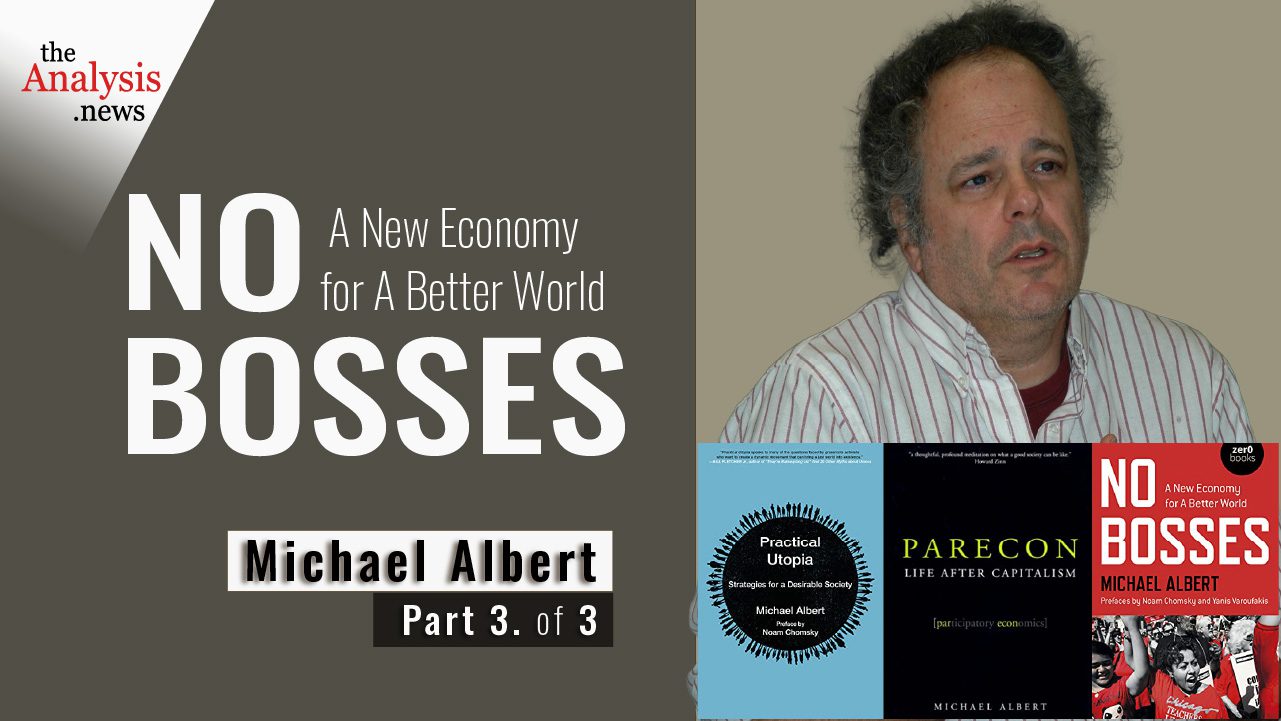

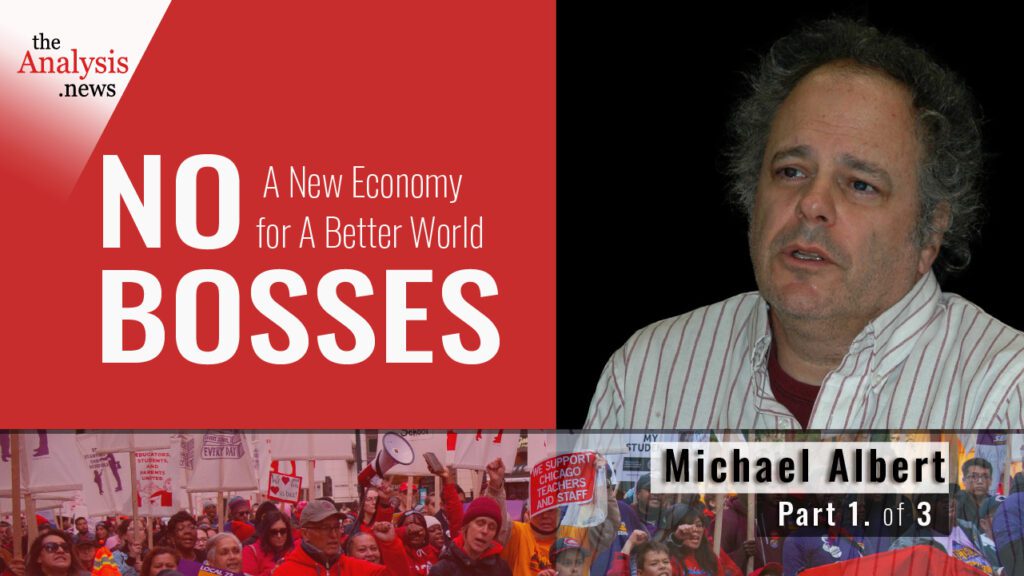

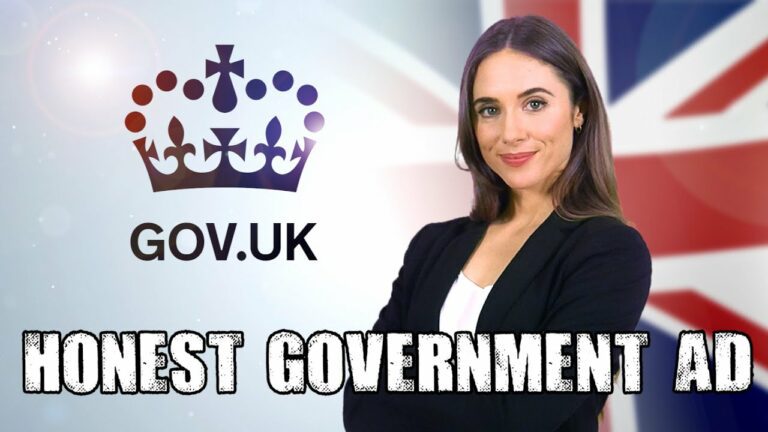

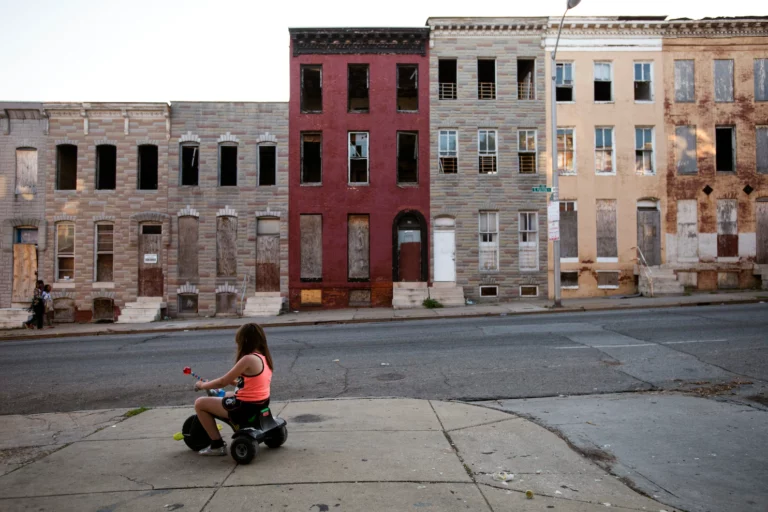
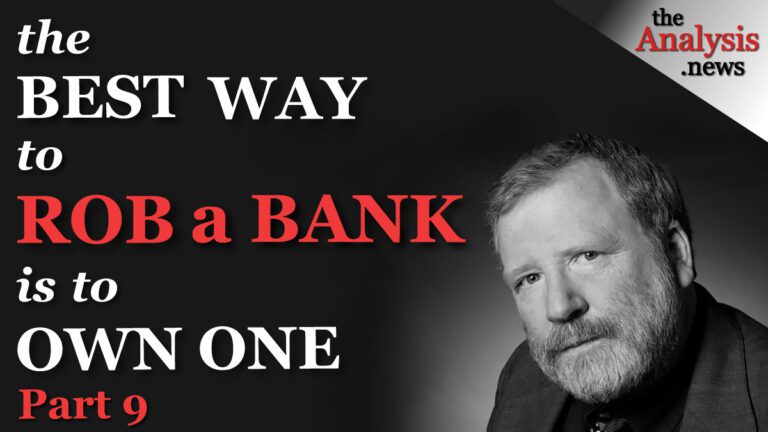

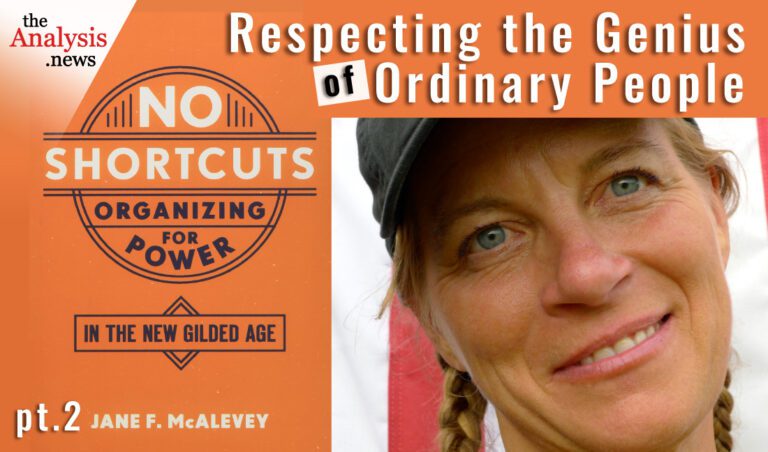
Thank you for this fascinating interview. Albert’s mention of the need to develop a consciousness that moves you beyond the specific ask–e.g., a $15 minimum wage–to a broader vision was certainly timely as, last week, Biden forgave 10-20K of student debt but left an exploitive system of higher education in place and failed to address other forms of debt, such as medical and housing debt. I look forward to reading “No Bosses.”